
Cecil Blount DeMille was an American filmmaker and actor. Between 1914 and 1958, he made 70 features, both silent and sound films. He is acknowledged as a founding father of American cinema and the most commercially successful producer-director in film history. His films were distinguished by their epic scale and by his cinematic showmanship. His silent films included social dramas, comedies, Westerns, farces, morality plays, and historical pageants.
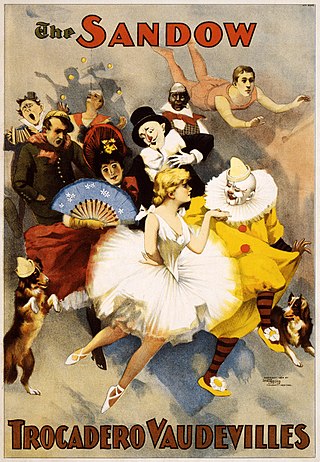
Vaudeville is a theatrical genre of variety entertainment which began in France at the end of the 19th century. A vaudeville was originally a comedy without psychological or moral intentions, based on a comical situation: a dramatic composition or light poetry, interspersed with songs or ballets. It became popular in the United States and Canada from the early 1880s until the early 1930s, while changing over time.
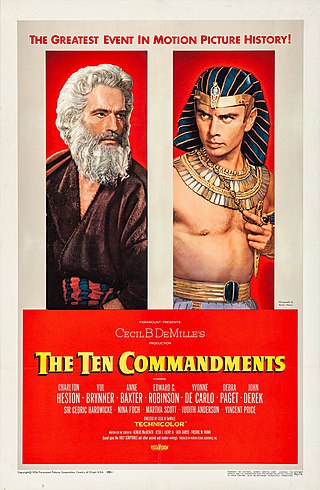
The Ten Commandments is a 1956 American epic religious drama film produced, directed, and narrated by Cecil B. DeMille, shot in VistaVision, and released by Paramount Pictures. The film is based on the 1949 novel Prince of Egypt by Dorothy Clarke Wilson, the 1859 novel Pillar of Fire by J. H. Ingraham, the 1937 novel On Eagle's Wings by A. E. Southon, and the Book of Exodus, found in the Bible. The Ten Commandments dramatizes the biblical story of the life of Moses, an adopted Egyptian prince who becomes the deliverer of his real brethren, the enslaved Hebrews, and thereafter leads the Exodus to Mount Sinai, where he receives, from God, the Ten Commandments. The film stars Charlton Heston in the lead role, Yul Brynner as Rameses, Anne Baxter as Nefretiri, Edward G. Robinson as Dathan, Yvonne De Carlo as Sephora, Debra Paget as Lilia, and John Derek as Joshua; and features Sir Cedric Hardwicke as Seti I, Nina Foch as Bithiah, Martha Scott as Yochabel, Judith Anderson as Memnet, and Vincent Price as Baka, among others.

Samuel Goldwyn, also known as Samuel Goldfish, was a Polish-born American film producer. He was best known for being the founding contributor and executive of several motion picture studios in Hollywood. He was awarded the 1973 Golden Globe Cecil B. DeMille Award, the Irving G. Thalberg Memorial Award (1947) and the Jean Hersholt Humanitarian Award (1958).

Samson and Delilah is a 1949 American romantic biblical drama film produced and directed by Cecil B. DeMille and released by Paramount Pictures. It depicts the biblical story of Samson, a strongman whose secret lies in his uncut hair, and his love for Delilah, the woman who seduces him, discovers his secret, and then betrays him to the Philistines. It stars Victor Mature and Hedy Lamarr in the title roles, George Sanders as the Saran, Angela Lansbury as Semadar, and Henry Wilcoxon as Prince Ahtur.

The Hollywood Heritage Museum, also known as the "Hollywood Studio Museum," is located on Highland Ave. in Hollywood, California, United States.

William Wallace Halleck Reid was an American actor in silent film, referred to as "the screen's most perfect lover". He also had a brief career as a racing driver.

David Belasco was an American theatrical producer, impresario, director, and playwright. He was the first writer to adapt the short story Madame Butterfly for the stage. He launched the theatrical career of many actors, including James O'Neill, Mary Pickford, Lenore Ulric, and Barbara Stanwyck. Belasco pioneered many innovative new forms of stage lighting and special effects in order to create realism and naturalism.

Jesse Louis Lasky was an American pioneer motion picture producer who was a key founder of what was to become Paramount Pictures, and father of screenwriter Jesse L. Lasky Jr.

The Squaw Man is a 1914 American silent Western film directed by Cecil B. DeMille and Oscar C. Apfel, and starring Dustin Farnum. It was DeMille's directorial debut and one of the first feature films to be shot in what is now Hollywood.
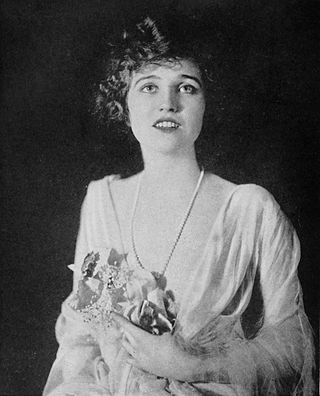
Agnes Ayres was an American actress who rose to fame during the period of silent films. She was known for her role as Lady Diana Mayo in The Sheik opposite Rudolph Valentino.

The Buccaneer is a 1958 pirate-war film made by Paramount Pictures starring Yul Brynner as Jean Lafitte, Charles Boyer and Claire Bloom. Charlton Heston played a supporting role as Andrew Jackson, the second time that Heston played Jackson, having portrayed him earlier in the 1953 film The President's Lady. The film was shot in Technicolor and VistaVision, the story takes place during the War of 1812, telling a heavily fictionalized version of how the privateer Lafitte helped in the Battle of New Orleans and how he had to choose between fighting for America or for the side most likely to win, the United Kingdom.
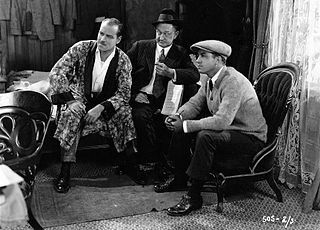
Charles Edgar Schoenbaum A. S. C. was an American cinematographer. His known film credits began in 1917--although he probably had earlier films--and ended with his untimely death from cancer in 1951. He was nominated for an Academy Award in 1949 for his work on Little Women.
Jesse Louis Lasky Jr. was an American screenwriter, novelist, playwright and poet.
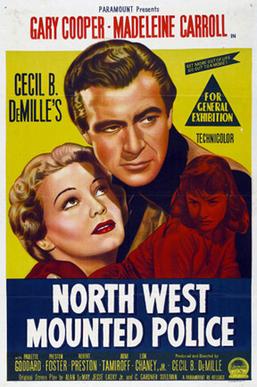
North West Mounted Police is a 1940 American epic north-western film produced and directed by Cecil B. DeMille and starring Gary Cooper and Madeleine Carroll. Written by Alan Le May, Jesse Lasky Jr., and C. Gardner Sullivan, and based on the 1938 novel The Royal Canadian Mounted Police by R. C. Fetherstonhaugh, the film is about a Texas Ranger who joins forces with the North-West Mounted Police to put down a rebellion in the north-west prairies of Canada. The supporting cast features Paulette Goddard, Preston Foster, Robert Preston, Akim Tamiroff, Lon Chaney Jr. and George Bancroft. Regis Toomey, Richard Denning, Rod Cameron, and Robert Ryan make brief appearances in the film playing small roles.

The Captive is an American silent-era film released on April 22, 1915. It was released on five reels. The film was written, directed, edited, and produced by Cecil B. DeMille. Jesse L. Lasky was another producer and Jeanie MacPherson worked with DeMille to write the screenplay. The film is based on a play written by Cecil B. DeMille and Jeanie MacPherson. The Captive grossed over $56,000 on a budget of $12,154. Blanche Sweet stars as Sonia Martinovich, alongside House Peters who stars as Mahmud Hassan. The film details the romantic war-era plight of Sonia and her lover Mahmud.

Sydney Leslie Deane was a first-class cricketer and entertainer, and the first Australian to appear in a Hollywood movie.

Wilfred Buckland was an American art director. Buckland worked as an art director with Cecil B. DeMille and Jesse Lasky, and later with Alan Dwan, from 1914 to 1927. He was Hollywood's first "art director" and is credited with a number of advancements in filmmaking, including the advances in lighting techniques, the development of architectural sets, and the use of miniature sets. In 1924, he was named one of the ten individuals who had contributed the most to the advancement of the motion picture industry since the time of its inception. A 1980 exhibition at the Victoria and Albert Museum in London advanced the argument that "everything we know as 'Hollywood' traces to Wilfred Buckland." Buckland was among the first inductees in the Art Directors Guild Hall of Fame.
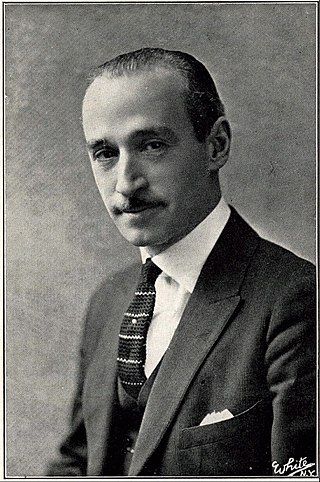
Robert Hood Bowers was an American composer, conductor and musical director of operettas and stage musicals, and a conductor and musical director for radio. He composed the musical scores for some of the most popular silent movies, including Aloma of the South Seas and A Daughter of the Gods.
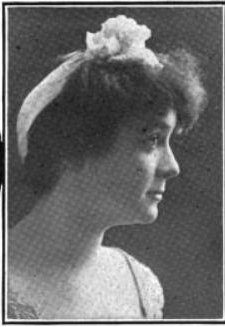
Minnette Barrett was an American actress. She primarily appeared on stage and in vaudeville, though she also had a few film appearances. She appeared in vaudeville with Joe Jefferson Jr. and Florence Nash.



















